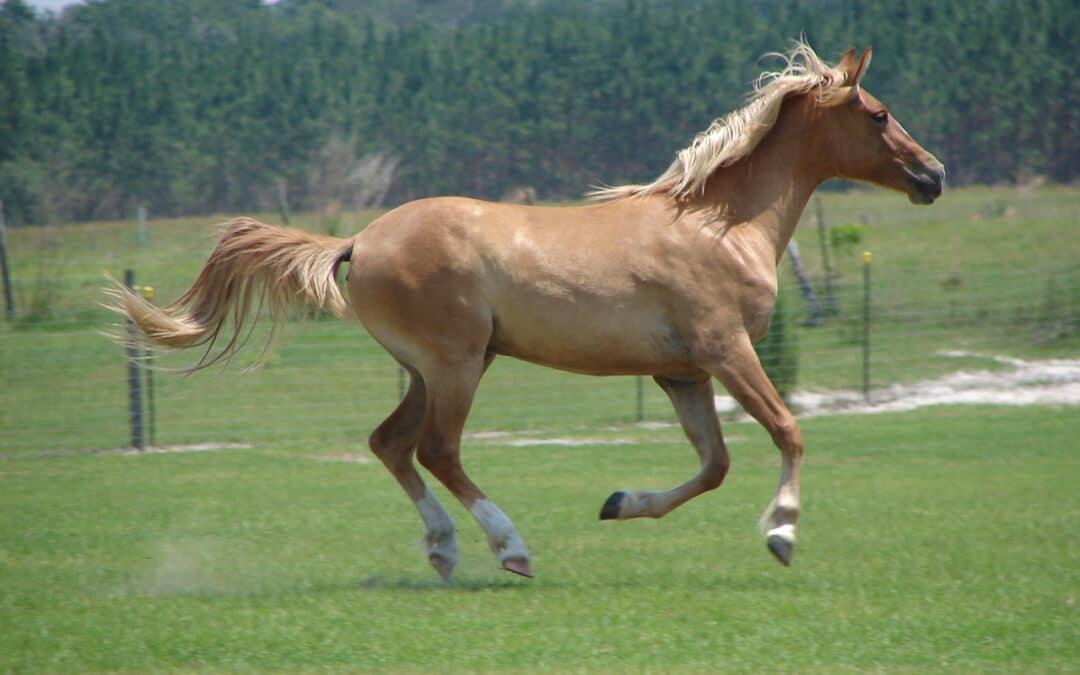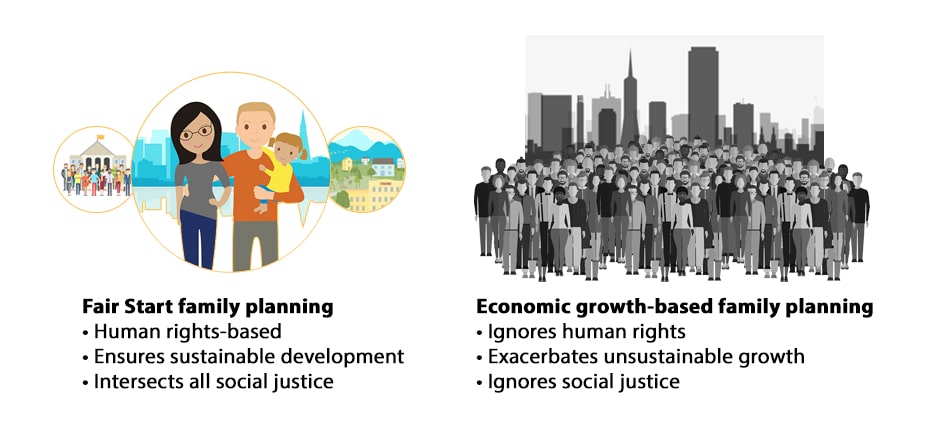
Humans are animals. Seeing us as such moves us away from anthrocentric thinking that ensured the climate crisis, and will kill millions.
So, what we refer to as animal rights and law focus on nonhumans not because of their species, but because of their unique vulnerability. Animal law is not merely law that refers to animals. Animal law would have to start with a capacity to actually protect nonhumans, especially in the creation of their relations with future humans who will determine much about their lives. Animal law in the best sense starts with inclusive birth and child welfare policies that create empathetic relations capable of benefitting animals. Nonhuman and human liberation are tied because the creation of our mutual relations is the biggest driver of outcomes.
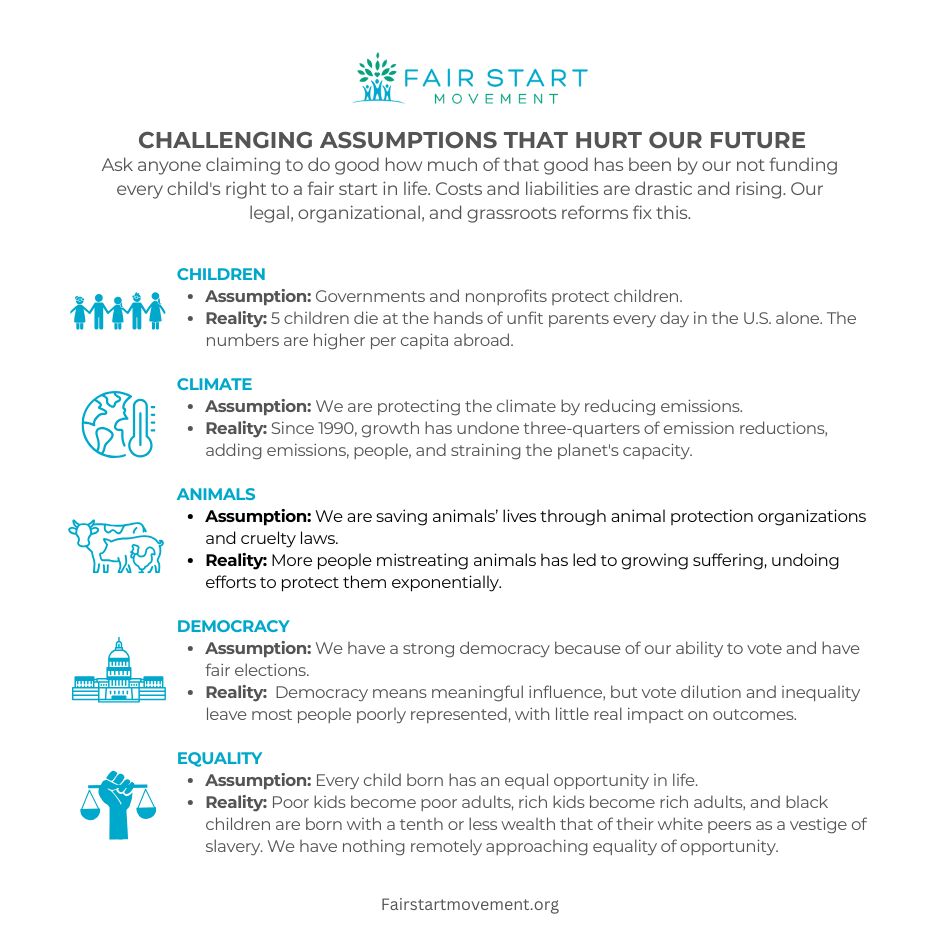
So animal rights, law and policy, if we want to protect nonhumans, can be seen just a system of obligation oriented around the most vulnerable, the most demanding form of law and justice. That system has to have the capacity to actually benefit the beneficiaries, not just pretend to. What does pretending to benefit animals look like? Look at most of the micro victories for animal rights and personhood claimed by organizations over the last few decades, and contrast those with the impacts of growth on animals, and the reality, at a macro level, of nonhuman propertyhood in our archaic reproductive rights regimes.
Why then not focus on infants and animals, and – at a macro level of inclusive animal personhood – the creation of fundamental power relations between the two? Those like animal rights theorist Peter Singer, and others, do not do so because that level of comprehensive vision involves equity, race, democracy, and other factors that require true tradeoffs against one’s positionality.
The wealthy families funding animal rights, law and policy, for decades, refused to deal with this issue because they wanted to benefit from a profitable system based on growth that quietly harmed animals, while seeming to be their saviors. Doing so while the world has been in ecological overshoot did more than undo the claims of many funders and the organizations they funded – it exacerbated a crisis killing millions.

Animal rights and law, in this sense, starts with the actual creation of power relations as children enter the world, represented by the collective pronouns implied or expressed in all statements, including purportedly “constitutive” statements like “We the People.” It is the most demanding standard, eco or animal centric, rather than anthropocentric, or punching down on the most vulnerable. But for Singer it was more important to raise his position as savior in an illegitimate system rather than focus on the “we” to legitimate it, and that did much more harm to animals than he did good.
But many funders, in those nations most responsible for the climate crisis, are using institutions and individuals – media, decoy nonprofits, universities, agencies, think tanks, celebrities, etc. – to create a fantasy world of equitable family planning, green environmental sustainability and social justice impact that is being vastly undone every day as children enter the world beneath the minimum of what they are owed. These entities are literally using wealth made at deadly cost to the values they claimed to further, wealth that is defended by the violence of the state, to drown out voices of most victims.
Singer’s version of animal rights and law, the abstraction away from the creation of actual relations, is just charade version of animal liberation they need. Value animals in the abstract with one hand, make money on growth and privilege at cost to them with the other.
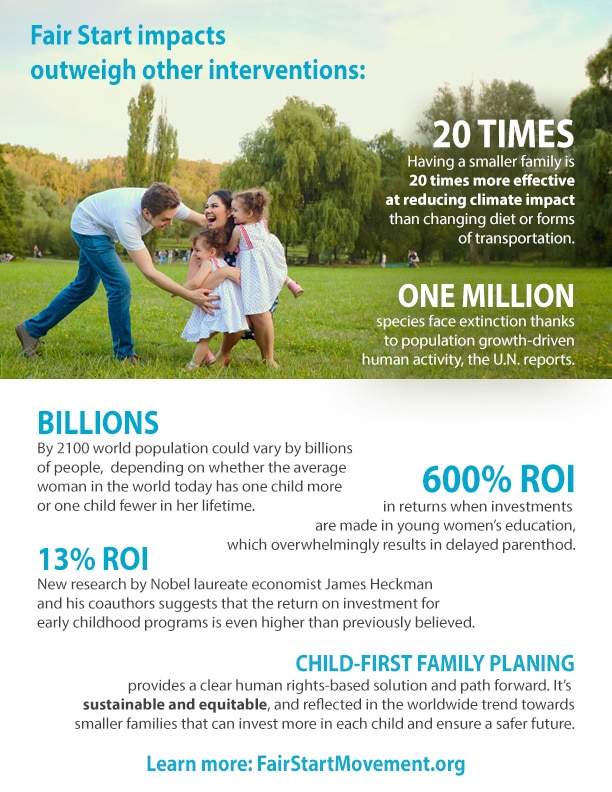
Effective animal rights in this sense is personally expensive, not profitable. It’s easier to ignore all of that and let the macro undo good for animals at the micro level. True animal rights and law focuses on the creation of power relations, and limiting capacity to harm others – the capacity that is the core of the Anthropocene and the antithesis of animal rights. True animal rights mean preemptive standards in things like assessing damages to animals (and children). If captivity harms elephants, it’s because it deviates from a biodiverse and less crowded world where they are free of most human influence, not deviation from a dismal life at a sanctuary.
Animal law starts with moving away from anthrocentric systems, towards seeing humans as the animals that they are, and situating them in equity before there is any sense that they can be free.
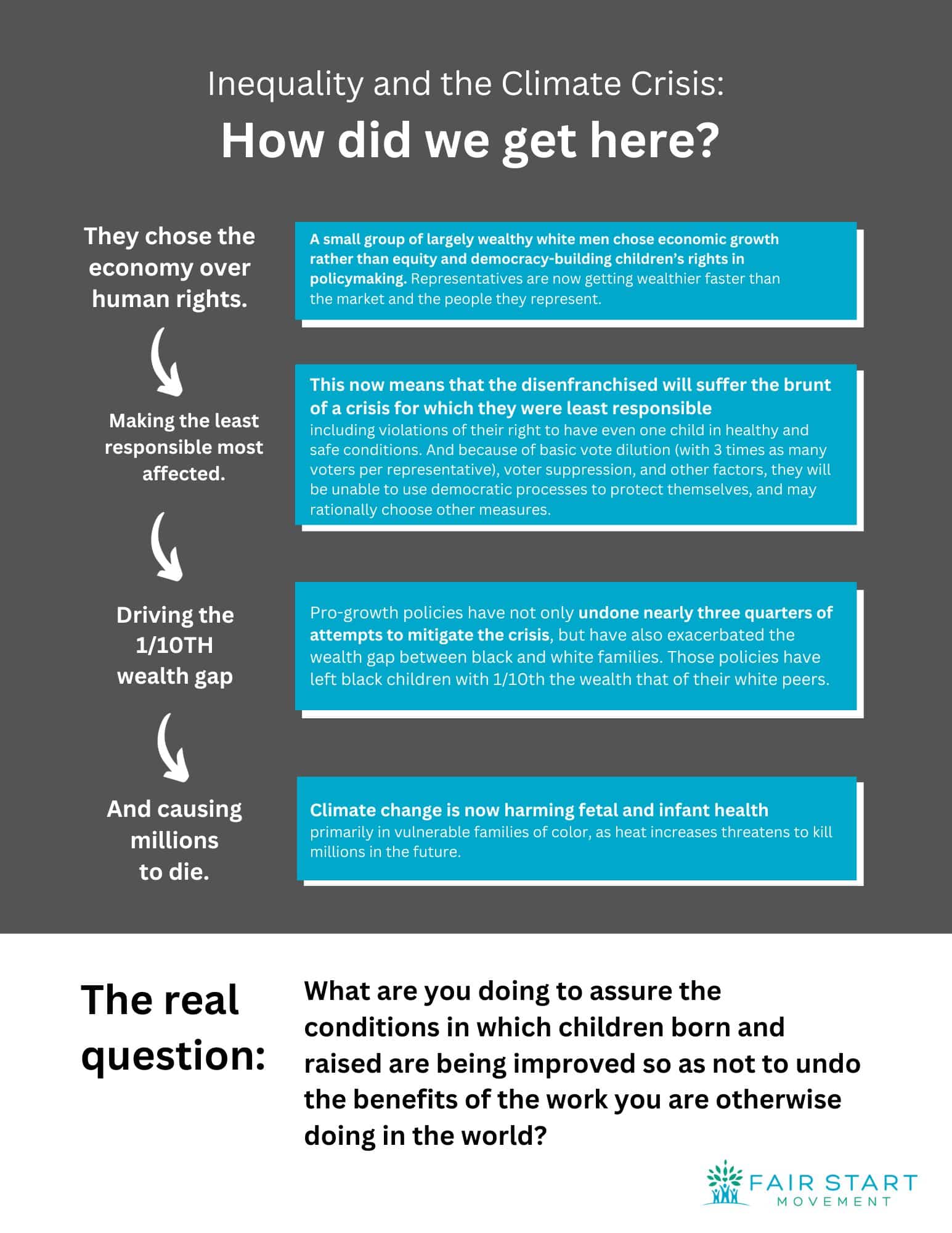
Concentrations of wealth and power, especially philanthropic funders, in those nations most responsible for the climate crisis often use institutions and individuals – media, nonprofits, governments, universities, agencies, think tanks, celebrities, etc. – to continue the entitlement scam, hiding behind a fantasy world of social justice impact that hides liability. The fantasy world ensures wealthy whites benefit at deadly cost to mostly persons of color.
To the extent animal law centers on the idea of nonhuman personhood, there has been progress at a meta-level recently. Most entities claiming to protect animals through the legal system only conceptualized of animal personhood in the abstract sense that it would take governmental entities recognizing it for such a thing to exist legally.
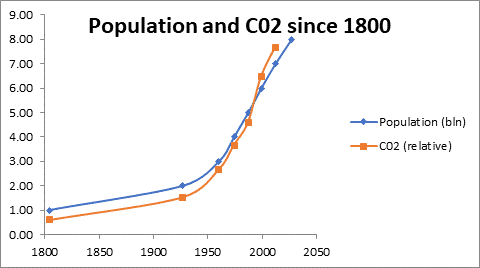
Direct Action Everywhere and others before them pushed back on this, treating the right to rescue animals as fundamental, and higher than government’s authority to treat animals as property merely subject to theft. However, most entities claiming to protect animals through the legal system do not recognize any form of macro animal personhood, which would have to start by inverting our current reproductive rights regimes, by requiring future generations of humans be born and raised consistent with species coexistence and total animal liberation.
That blind spot harms nonhumans, humans who suffer in the failed environmentalism of the anthrocentric standards that animal rights should have prevented, and undercuts legality itself by ignoring the need to empower future democratic constituents rather than use low child welfare standards to exploit them as economic inputs for growth.
Funders have actually moved to block macro animal personhood because they make money on growth, and cannot resist seeming to benefit animals while being able to lord their wealth over others.
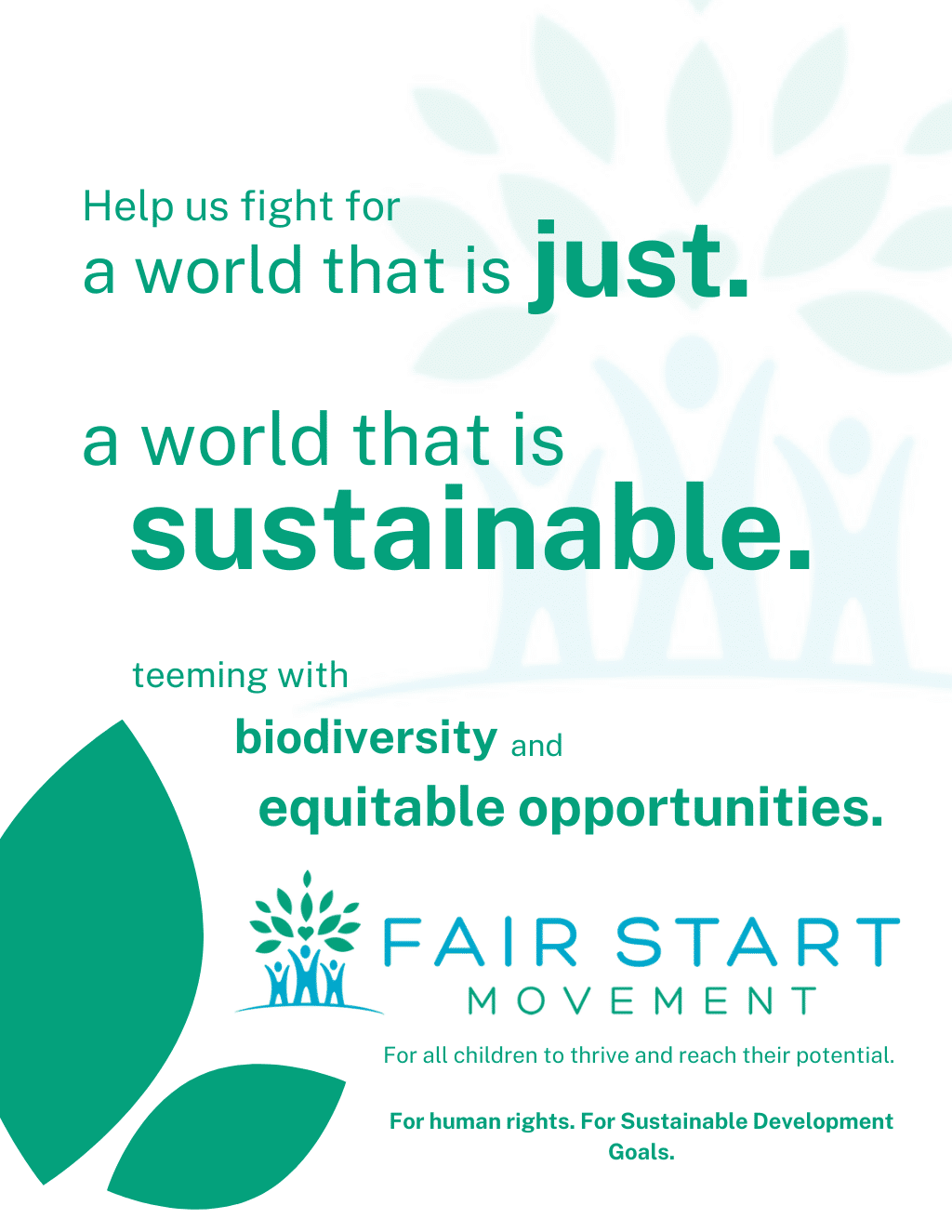
The fantasy world of animal rights and law as it exists today, without that inversion, was created mostly by entities that were operating without accountability or genuine constituents, have cost businesses trillions of dollars long run. A lot of environmental and other social justice agenda-setting over the last several decades came from institutions driven by philanthropy and familial wealth, entities – rife with nepotism – that are unaccountable to market and electorate forces. The climate/inequity crisis is going to cost business and government more than any other factor in the years to come.
Many businesses and governments now have claims against philanthropy and their low impact corporate campaigns that magically enriched some foundations and families at deadly cost to millions. Violence is one of the costs. Much of the violence we see in the world today derives from this failure, with disempowered persons acting out in systems of government incapable of truly representing them. Instead of those who benefit from this process carrying the risk of violence, innocents are usually targeted.
As early as 2003, activists now involved with Fair Start were urged by the nonprofits in which they worked to promote food reforms as a means to benefit animals, reforms they and their employers knew were being undone by growth and inequity which enriched only a few and create the chaos we all see in the world today. The climate crisis has created a convergence of interest between humans and nonhumans in moving towards equity-based reforms. But not all humans share that interest equally, and as the crisis unfolded a handful of wealthy funders misdirected the animal rights movement towards food sales and away from family/equity reforms, and in a way that benefitted them at deadly cost to humans (most children of color) and nonhumans.
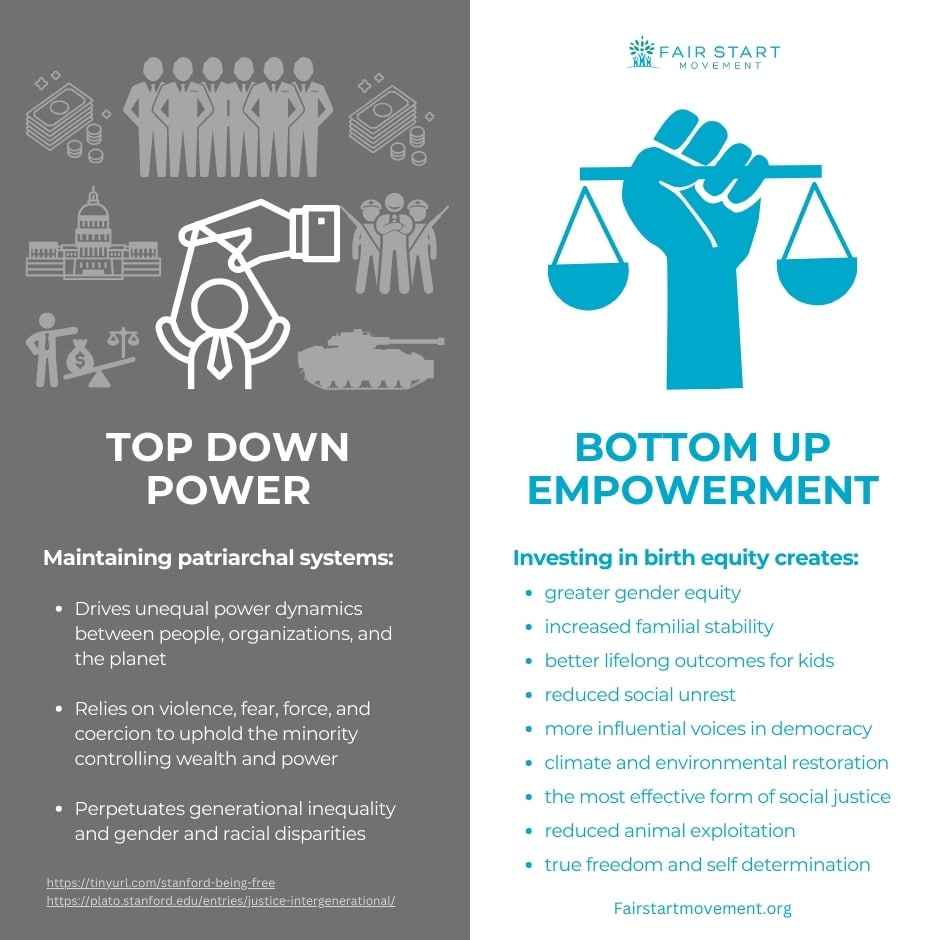
Not addressing birth inequity allows some to treat inherited wealth and other privileges as somehow magically outside of the democratic process, and to use it, their positionality, and growth to slowly disenfranchise the average voter. We are now at a place where these families and their concentrations of wealth and power can use the wealth they made through the sustainability scam to attack the democratic process itself.
We have to and can invert that process.
How is it not racist to refuse children of color a fair start in life? How should we handle those that refuse such fairness, even when it will kill millions as they are born without resources and in the path of danger? Why would anyone have to follow the rules in a system where they are not measurably empowered?
Most claiming to do good work in the world should be eager to ensure the fertility delay and readiness reparations discussed below because they compensate for the absence of the values of self-determination in current human reproductive rights regimes and evade harm to those values in the future. This avoids public interest work that is essentially performative, addressed to audiences that then undo the impact.
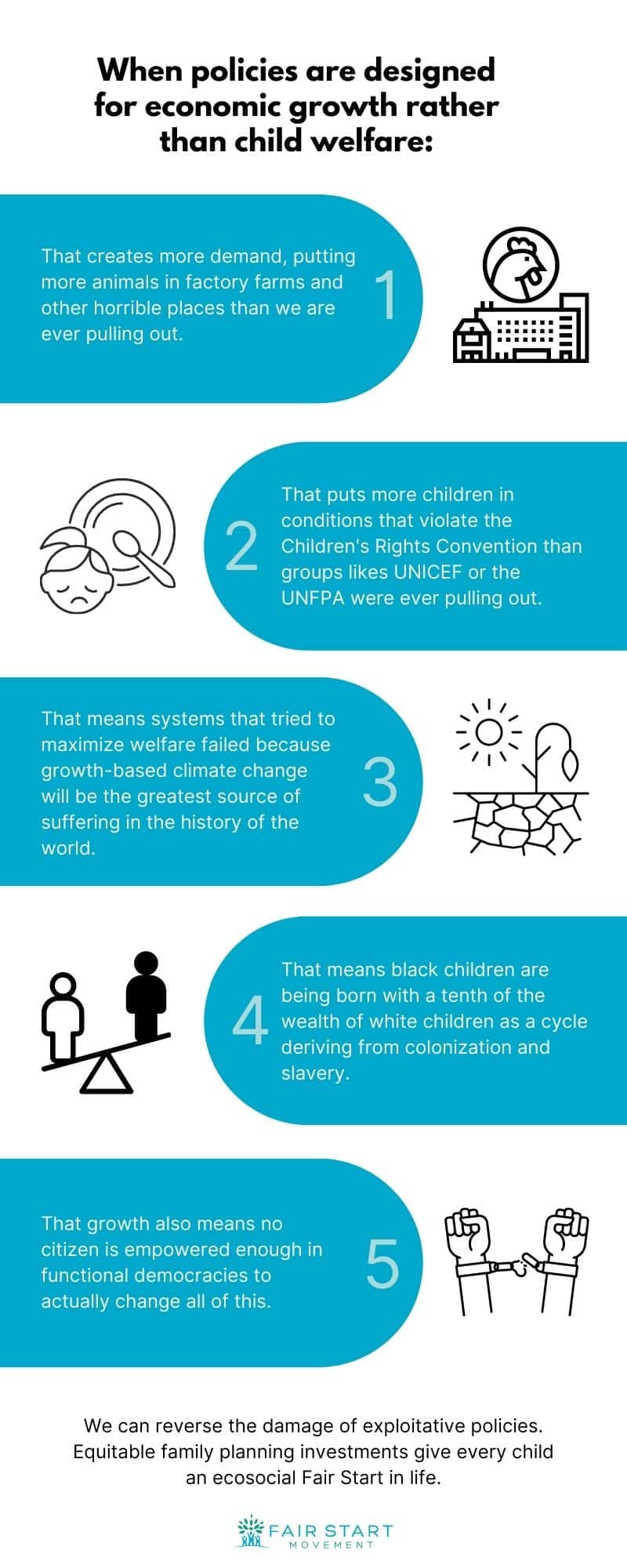
How can we all move forward?
All can support Fair Start lead Esther Afolaranmi and her efforts before the United Nations to legitimate political systems by ensuring accurate and equitable climate reparations for the harm done. These reparations ensure debt/savings accounting for children as they enter the world.
Fair Start reforms and debt/savings birth accounts mean no child’s life will be made worth more than the life of another. This reform targets the fraud wealthy white families and fake charities in polluting nations have been using for decades to hide liability for the climate crisis.
The concentrations of wealth and power you see in the world today have not created value. Instead they first illegally used their wealth to create their own audiences and artificial demand by ensuring dismal standards for child development and education, treating people as economic inputs rather than citizens whose influence offsets one another. In other words, to properly assess costs and benefits we have to first become groups of people capable of doing so in a way that is actually inclusive and reflective of the group constituents.
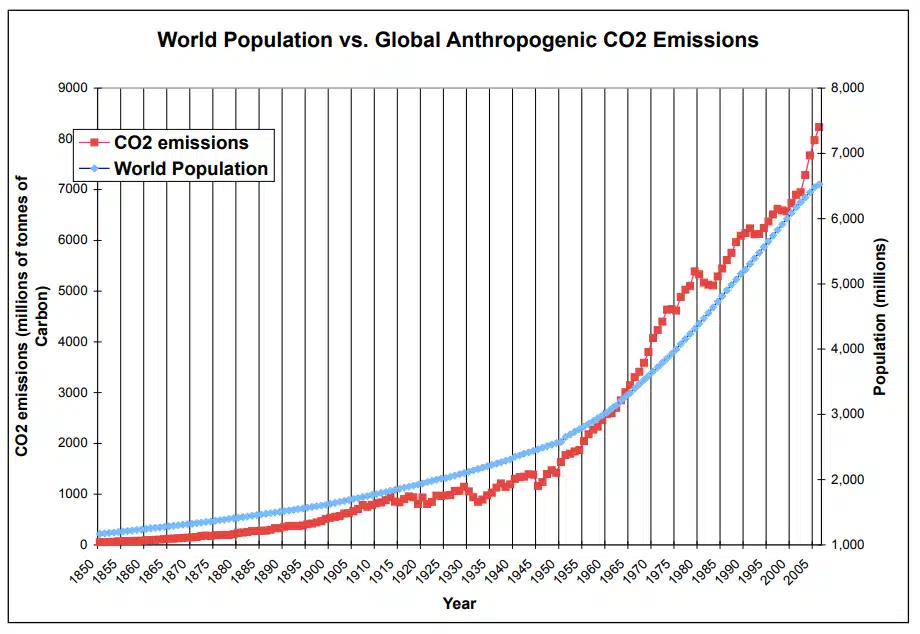
You can take legal action.
States attorneys generals and other law enforcement agencies are obligated to account for the full spectrum of harms created by the climate crisis and its drivers, and to contrast them with potentially fraudulent claims many individuals and institutions make about their impacts. This assessment includes deviation from baselines that would have prevented the crisis, birth inequity that ensures those who benefitted from the crisis live while those least responsible die, political inequity and vote dilution that means the average voter has little influence on who can control their lives, etc.
We can identify – on a binary spectrum – those who believe in linking children to debt/savings accounting to move towards self-determination, and those who do not. The rights of those who stand in the way are contingent on their supporting the rights of others, and their children will inherit their death debt if they do not pay it. Knowing the truth – that the default for what is fundamentally permissible depends on how we include and empower others – lets us overcome the most influential barriers to justice, and ensure a better future for all.

